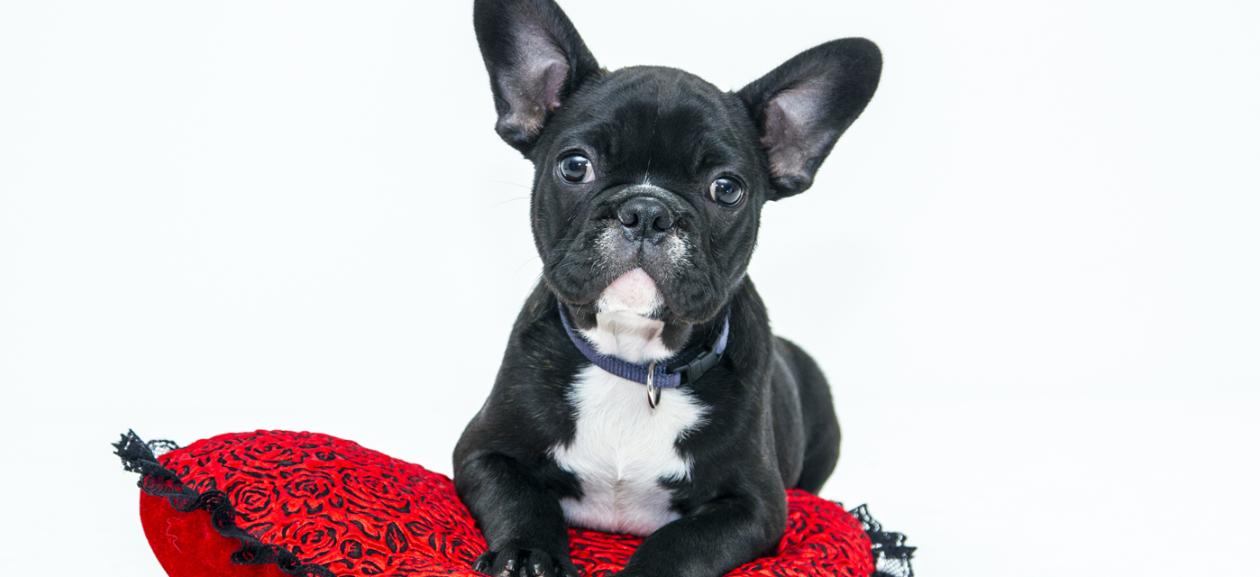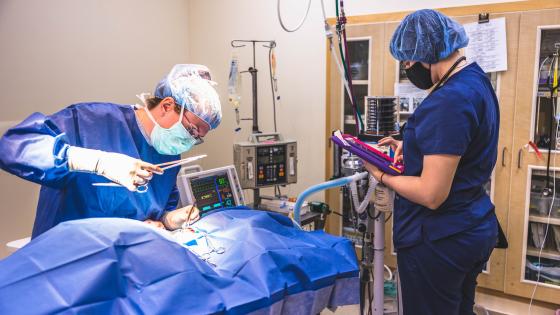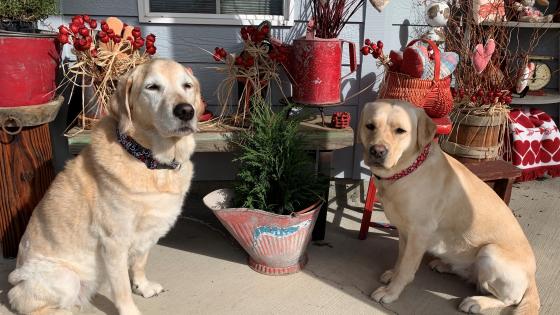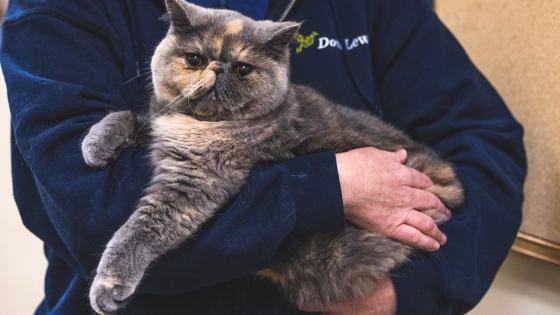
Spread the Love With Pet Safety on Valentine's Day
PORTLAND, Ore. – Veterinarians at DoveLewis Veterinary Emergency & Specialty Hospital are spreading the love with a reminder and safety tips just before Valentine’s Day. While chocolate poisoning is the most common hazard, there are also several additional toxic items that pet owners should be aware of on this holiday.
Chocolate
Cacao beans contain a chemical compound that is toxic to animals. While humans have the ability to break down the compound quickly and naturally, this chemical can last for up to 18 hours in a dog’s system. However, symptoms of toxicity usually appear within 12 hours or less. Common signs of chocolate ingestion include excitement, nervousness or trembling, vomiting and diarrhea, excessive thirst or urination, muscle spasms and seizures, or even coma or death.
Xylitol
Xylitol is a common sugar substitute that can be found in many sugar-free products, such as chewing gum, mints, vitamins and toothpaste. This ingredient can cause vomiting, diarrhea, weakness, ataxia, hypoglycemia, seizure and, in extreme cases, liver failure if ingested by your pet.
Alcohol
Most alcohol ingestion occurs as a result of animals drinking from unattended glasses, so keep a watchful eye on your glass when enjoying alcoholic beverages near your pet. Alcohol poisoning can cause vomiting, diarrhea, central nervous system depression, difficulty breathing, tremors and comas.
Flowers
Caution should be used when choosing and displaying flowers for your loved ones. Lilies are especially toxic to cats and should not be kept in a home with felines. Varietals such as Tiger lilies and Easter lilies may cause feline acute kidney failure if ingested. Other types, including Peace lilies and Calla lilies, cause gastric and oral irritation and vomiting. Tulips and azaleas can be toxic to both dogs and cats, and even roses can pose a hazard with their thorns.
Ribbon
On all gift-giving holidays, cat owners should always be cautious of leaving presents wrapped with ribbon, string or bows unattended. If ingested, these items can cause choking and severe gastrointestinal issues.
Pet owners are encouraged to call DoveLewis or their regular veterinarian immediately should they notice or suspect that their animal has ingested any hazardous items.



